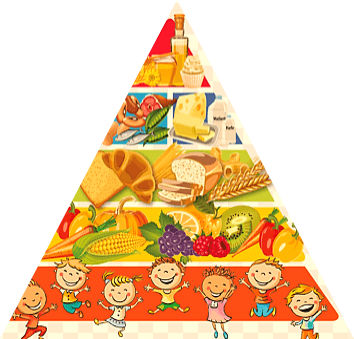Child nutrition refers to the intake of nutrients and other substances needed for the proper growth and development of children. Ensuring that children receive adequate nutrition is important for their physical and mental development, as well as their overall health and well-being.
There are various recommendations and guidelines for child nutrition, depending on the age and specific needs of the child. In general, it is important for children to consume a varied diet that includes a range of nutrient-rich foods, such as fruits, vegetables, whole grains, lean proteins, and healthy fats. Children should also be encouraged to drink plenty of water and avoid sugary drinks and snacks.
It is also important to consider the portion sizes of food that children eat, as well as the frequency of meals and snacks. Children have smaller stomachs and need to eat smaller, more frequent meals to meet their nutritional needs. If you are concerned about your child’s nutrition, it is a good idea to speak with a healthcare professional, such as a doctor or a registered dietitian, who can provide personalized advice and recommendations.
MOMS’ OBSESSIVENESS WITH CHILDREN’S DIET
It is understandable for parents to be concerned about their children’s nutrition and to want to ensure that they are eating a healthy and balanced diet. However, it is important for parents to be mindful of their own behaviors and to try to avoid becoming excessively obsessive or rigid about their children’s diet.
Obsessive or rigid behaviors around food and nutrition can create unnecessary stress and anxiety for both the parent and the child. It can also interfere with the child’s normal relationship with food and lead to disordered eating patterns or even eating disorders.
Instead of being overly strict about what a child can and cannot eat, it is generally more effective to focus on providing a variety of healthy and nutritious options and encourage children to make their own food choices within those options. It is also important to model healthy eating habits and to be mindful of one’s own relationship with food.
If you are concerned about your own behaviors around your child’s diet and nutrition, it may be helpful to speak with a healthcare professional, such as a doctor or a registered dietitian, who can provide guidance and support.
DO YOU PRESSURE YOUR KID BY OVER-DIET PATTERN??

It is important for parents to be mindful of their own behaviors and to try to avoid pressuring their children to follow a specific diet or eating pattern. Children are still developing and learning about food and nutrition, and it is important for them to have the freedom and autonomy to make their own food choices within a range of healthy options.
Pressuring children to follow a specific diet or eating pattern can create unnecessary stress and anxiety, and may interfere with their normal relationship with food. It can also lead to disordered eating patterns or even eating disorders.
Instead of being overly strict about what a child can and cannot eat, it is generally more effective to focus on providing a variety of healthy and nutritious options and encourage children to make their own food choices within those options. It is also important to model healthy eating habits and to be mindful of one’s own relationship with food.
If you are concerned about your own behaviors around your child’s diet and nutrition, it may be helpful to speak with a healthcare professional, such as a doctor or a registered dietitian, who can provide guidance and support.
BALANCED AND HEALTHY DIET ROUTINE FOR CHILDREN RECOMMENDED BY PEDIATRICS

Ensuring that children consume a balanced and healthy diet is important for their physical and mental development, as well as their overall health and well-being. The specific recommendations for a balanced and healthy diet will depend on the age and specific needs of the child.
In general, children should consume a varied diet that includes a range of nutrient-rich foods, such as:
Fruits and vegetables:
These should make up a significant portion of a child’s diet, as they are rich in vitamins, minerals, and fiber. Aim for a variety of different types and colors of fruits and vegetables.
Whole grains:
Choose whole-grain bread, cereals, pasta, and rice, as they are rich in fiber and other nutrients.
Lean proteins:
Include sources of protein such as chicken, turkey, fish, beans, and tofu.
Healthy fats:
Choose sources of healthy fats, such as nuts, seeds, avocados, and olive oil.
It is also important for children to drink plenty of water and limit their intake of sugary drinks and snacks.
In terms of portion sizes and meal frequency, it is important to consider the size of a child’s stomach and energy needs. Children have smaller stomachs and may need to eat smaller, more frequent meals to meet their nutritional needs.
If you have concerns about your child’s diet and nutrition, it is a good idea to speak with a healthcare professional, such as a doctor or a registered dietitian, who can provide personalized recommendations.
HOW DO INTRODUCE YOUR CHILDREN TO A VARIETY OF FOOD TASTES AND FORMS??

Introducing children to a variety of foods and flavors can help them develop healthy eating habits and a love for nutritious foods. Here are a few tips for introducing children to a variety of foods:
Start early:
Introducing a variety of foods to infants and young children when they are starting solid foods can help them learn to accept and enjoy a wide range of flavors and textures.
Offer a variety of foods:
Offer a variety of foods, including different types of fruits and vegetables, whole grains, lean proteins, and healthy fats.
Be patient:
It may take children several tries before they accept a new food. Don’t get discouraged if they don’t like a portion of food right away – keep offering it in different forms and flavors.
Involve children in meal planning and preparation:
Involving children in meal planning and preparation can help them feel more invested in the food they are eating and may increase their willingness to try new foods.
Be a good role model:
Children are more likely to try new foods if they see their parents and other adults eating and enjoying them.
It is important to remember that all children are different and may have their own preferences and dislikes when it comes to food. It is okay for children to have their own tastes and to not like certain foods – the goal is to provide a variety of healthy options and encourage children to make their own food choices within those options.
CHILDRENS’ DIET ROUTINE ACCORDING TO MEDICAL
It is important for children to have a healthy and balanced diet to support their growth and development. The specific diet needs of a child will depend on their age, gender, size, and activity level. Here are some general guidelines for a healthy diet for children:
Include a variety of foods:
Children should eat a variety of different foods from all food groups, including fruits, vegetables, grains, proteins, and dairy. This will help ensure that they get all the nutrients they need.
Limit added sugars:
Children should limit their intake of sugary foods and drinks, as these can contribute to weight gain and dental problems.
Eat protein-rich foods:
Children need protein for growth and development. Good sources of protein include meat, poultry, fish, beans, nuts, and dairy products.
Choose healthy fats:
Children should consume healthy fats, such as those found in avocados, nuts, and olive oil, instead of unhealthy fats like Tran’s fats and saturated fats.
Drink plenty of water:
Children should drink plenty of water throughout the day to stay hydrated. Water is the best choice for hydration, but low-fat milk and 100% fruit juice can also be included in the diet.
It’s also important to encourage children to eat regularly and to be physically active. To involve children in meal planning and grocery shopping, as this can help them develop healthy eating habits. Set a good example by eating a healthy diet yourself.
HOW CAN WE PREVENT OUR CHILDREN’S BY JUNK AND UNHEALTHY EATING HABITS??
There are several strategies you can use to prevent your children from developing unhealthy eating habits and a preference for junk food:
Set a good example:
Children often mimic the eating habits of their parents and caregivers, so it’s important to set a good example by eating a healthy diet yourself.
Offer healthy options:
Make sure that healthy foods, such as fruits, vegetables, and whole grains, are readily available and appealing to your children.
Limit unhealthy snacks:
Try to limit your children’s access to unhealthy snacks, such as chips, cookies, and candy, and instead offer healthier options like fruit, nuts, and yogurt.
Make meals and snacks enjoyable:
Make meal and snack time a positive and enjoyable experience for your children. This can help them develop a positive association with healthy foods.
Encourage physical activity:
Encourage your children to be physically active, as regular physical activity can help them maintain a healthy weight and develop healthy eating habits.
Involve your children in meal planning and grocery shopping:
Involving your children in meal planning and grocery shopping can help them develop an understanding of what goes into a healthy diet and how to make healthy food choices.
Don’t use food as a reward:
Avoid using food as a reward or punishment, as this can lead to an unhealthy relationship with food.
By following these strategies, you can help your children develop healthy eating habits and a preference for healthy foods.
THINGS AFFECT ON GROWTH AND NUTRITION OF YOUR CHILD
There are several factors that can affect a child’s growth and nutrition:
Diet:
A child’s diet plays a major role in their growth and nutrition. A balanced diet that includes a variety of fruits, vegetables, grains, proteins, and dairy is important for supporting growth and development.
Health conditions:
Certain health conditions, such as allergies, celiac disease, and inflammatory bowel disease, can affect a child’s ability to absorb nutrients and contribute to poor growth and nutrition.
Physical activity:
Regular physical activity is important for maintaining a healthy weight and supporting growth and development.
Genetics:
Genetics can also play a role in a child’s growth and nutrition. Some children may be more prone to certain health conditions or have a higher risk of poor nutrition due to their genetic makeup.
Environment:
The environment in which a child grows up can also affect their growth and nutrition. Factors such as access to nutritious food, clean water, and adequate healthcare can all impact a child’s growth and nutrition.
By addressing these factors and ensuring that your child has access to a healthy diet, regular physical activity, and appropriate healthcare, you can help support their growth and nutrition.
KEYWORDS: fitness, health, vitamin, calorie counter, weight loss, diet, Carbohydrates, supplement.
REFERENCES:

Great knowledge!